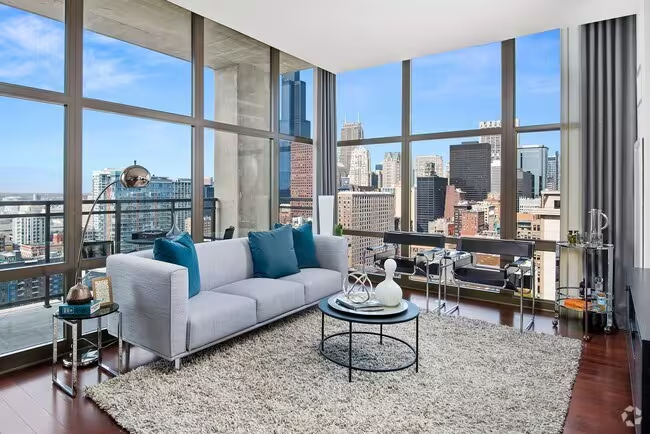Trying to land short-term housing in a major city can be more frustrating than you’d expect. Between overpriced listings, vague lease terms, and places that look nothing like the photos, it’s easy to burn through time—and money—before you even arrive. But with the right approach, you can avoid common mistakes and find a comfortable place that doesn’t wreck your budget.
Whether you’re staying for work, study, or just testing out remote life, knowing how to find reliable short-term housing is key. You don’t need to settle for something that’s too expensive or feels like a gamble. You just need to know where to look, what to watch out for, and how to set your priorities.
Start with Your Timeline and Budget
Before you scroll through listings, get clear on how long you’re staying and how much you’re actually willing to spend. Short-term rentals usually cost more per night than long-term leases, but they shouldn’t feel like hotel prices either.
Your ideal budget should leave room for things like utilities, Wi-Fi, and any local taxes or service fees. Some places bundle those into the rent, while others don’t mention them until you’ve almost booked. If you’re not careful, that “affordable” rental can end up costing way more than you planned.
Also, think about flexibility. Are your dates fixed? Or would you consider shifting your stay by a week or two to get a better deal? Prices can change fast depending on season, demand, and availability—being flexible gives you more options.
Use Platforms Made for Temporary Housing
It’s tempting to jump on general listing sites, but most of them are designed for long-term leases or one-night vacation stays. That leaves a weird gap for people who need something in between.
Instead, look for platforms built specifically for short- and mid-term stays. These tend to offer more flexible contracts, furnished spaces, and move-in-ready listings. One example is HousingAnywhere Paris, which lists short-term rentals with verified landlords and built-in safeguards. It’s a useful option if you want a clear contract and don’t want to deal with the back-and-forth of local classifieds.
Using the right platform also cuts down on risk. You’re less likely to run into fake listings, hidden fees, or landlords who disappear after taking a deposit. While no platform is perfect, it helps to use one designed for this kind of stay.
Be Smart About Location, But Flexible on Extras
Location matters—but not always in the way people think. Instead of aiming for the most popular neighborhoods, focus on places with decent transport, basic amenities, and reliable internet. You’ll likely save money and still be well connected.
Also, question what you actually need in the space. Do you really need a huge kitchen if you mostly eat out? Is a balcony worth the extra cost if you’ll be working in cafés anyway? It’s easy to over-prioritize features that look nice in a photo but don’t add much to your daily life.
Staying flexible on certain extras makes it easier to grab a good deal when it pops up. The more you’re willing to adapt, the more likely you are to find something that fits your budget without sacrificing comfort.
Avoid These Common Mistakes
There are a few traps that people fall into all the time when booking short-term housing. One of the biggest is assuming that price equals quality. A high rent doesn’t always mean a better space. It might just mean the listing is in a high-demand area or was priced for tourists instead of residents.
Another mistake is skipping the fine print. Always check things like cancellation policies, deposit terms, and what’s actually included in the rent. Some listings look great until you realize the Wi-Fi is extra or the place isn’t available until 10 days after you arrive.
Also, watch out for listings with very few photos or overly generic descriptions. If something feels vague or inconsistent, it’s worth digging deeper—or moving on. Trust your gut. If a listing seems too good to be true, it probably is.
Ask the Right Questions Before You Commit
Once you find a place you’re interested in, don’t rush. Take a minute to ask a few basic—but important—questions. For example:
- Is the rent all-inclusive?
- How fast is the internet?
- Can you extend the stay if needed?
- What’s the process for getting your deposit back?
These might sound simple, but they can save you from big headaches later. Good landlords and property managers won’t mind answering. If they dodge the question or give vague answers, that’s a red flag.
You should also confirm the move-in and move-out process. Some rentals require you to meet someone with a key, while others use lockboxes. Make sure you know how to actually access the place, especially if you’re arriving late.
Keep a Backup Plan (Just in Case)
Even when you do everything right, things can fall through. Maybe a host cancels, a booking doesn’t go through, or you arrive and something isn’t right. It helps to have a backup in mind—a hotel, a short-term rental, or even a friend’s place—just for the first night or two.
It’s rare to need a Plan B, but having one takes the pressure off. It means you don’t have to settle for a place you’re unsure about just because your flight’s in two days. A little preparation can go a long way.
Final Takeaways
Short-term housing doesn’t have to be stressful or overpriced. The key is to plan ahead, use trusted platforms, and know what you actually need from your space. Focus on solid, well-reviewed listings over flashy photos or vague promises. Ask the right questions, stay flexible, and keep a backup just in case.
With a little strategy, you’ll find something that fits your lifestyle—and your budget—without the usual headaches. And once you’ve got a good place sorted, the rest of your stay tends to go a whole lot smoother.

